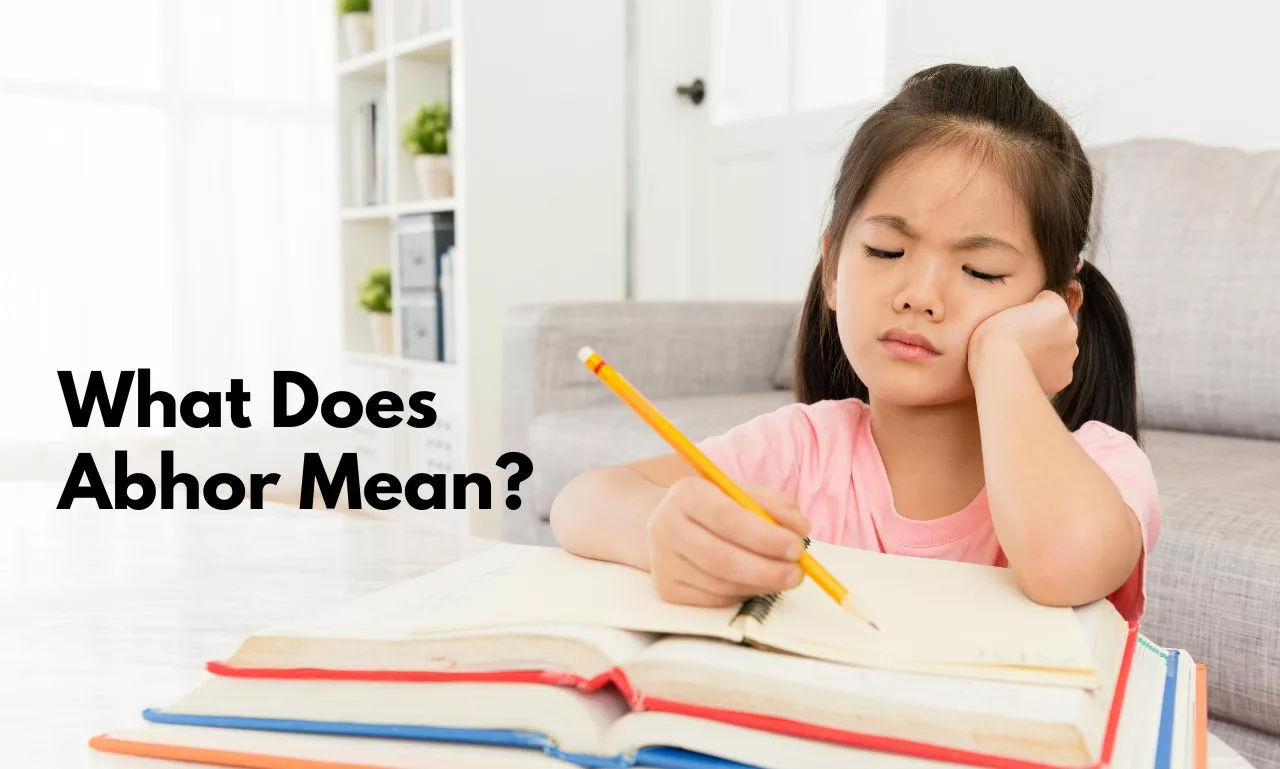The English language is a treasure trove of words, each with its unique shade of meaning. One such word is “abhor,” which often crops up in literature, daily conversation, and various forms of communication. But what does “abhor” mean, and how can it be used effectively in context? In this article, we’ll explore the meaning, usage, and some examples of this powerful and emotive word.
Table of Contents
The Definition of “Abhor”
“Abhor” is a verb that describes an intense and often profound feeling of disgust, hatred, or repulsion towards something or someone. When you abhor something, it means you have a strong aversion to it, finding it utterly detestable or loathsome. This word expresses a deep emotional response to whatever is being abhorred.
Etymology of “Abhor”
To understand a word better, it’s often helpful to explore its etymology. “Abhor” traces its roots back to the Middle English word “abhorren,” which means “to loathe” or “to shudder at.” This Middle English term evolved from the Old English word “abhorrēn,” which meant “to shrink back in fear.” Over time, “abhor” has maintained its strong negative connotations and is used to express a profound repulsion.
Usage of “Abhor”
“Abhor” is used to convey strong, negative emotions. It is typically employed in the following ways:
- Direct Object: When using “abhor,” you need to specify what you are disgusted by. For example, “She abhors violence,” indicates that the subject strongly detests violence.
- Prepositional Phrases: “Abhor” is also used with prepositional phrases to clarify the context of the aversion. As an example, consider how strongly he detests the notion of cruelty to animals.”
- Adverbs: You can enhance the intensity of the aversion by using adverbs like “utterly,” “completely,” or “deeply.” For instance, “They utterly abhorred the taste of the food.”
- Comparative and Superlative Forms: You can emphasize the degree of disgust by using comparative forms like “more abhorrent” and superlative forms like “most abhorrent.”
Examples of “Abhor” in Sentences
- Many people abhor the thought of cruelty to animals, advocating for their rights.
- The citizens hold a deep-seated aversion to the corruption within their government, and they are vocal in their calls for transparency and accountability.
- She has an intense dislike for the taste of seafood, to the extent that she steadfastly avoids it in any situation.
- The novel’s antagonist displayed such cunning and manipulation that readers found themselves thoroughly repelled by his character.
Conclusion
In summary, the word “abhor” is a powerful and emotionally charged term used to convey a deep-seated repulsion or hatred towards something or someone. Its historical roots in Old and Middle English add to its weight and significance. When used effectively in speech or writing, “abhor” can paint a vivid picture of intense dislike or disgust, making it a valuable word in the English language for expressing strong negative emotions.
